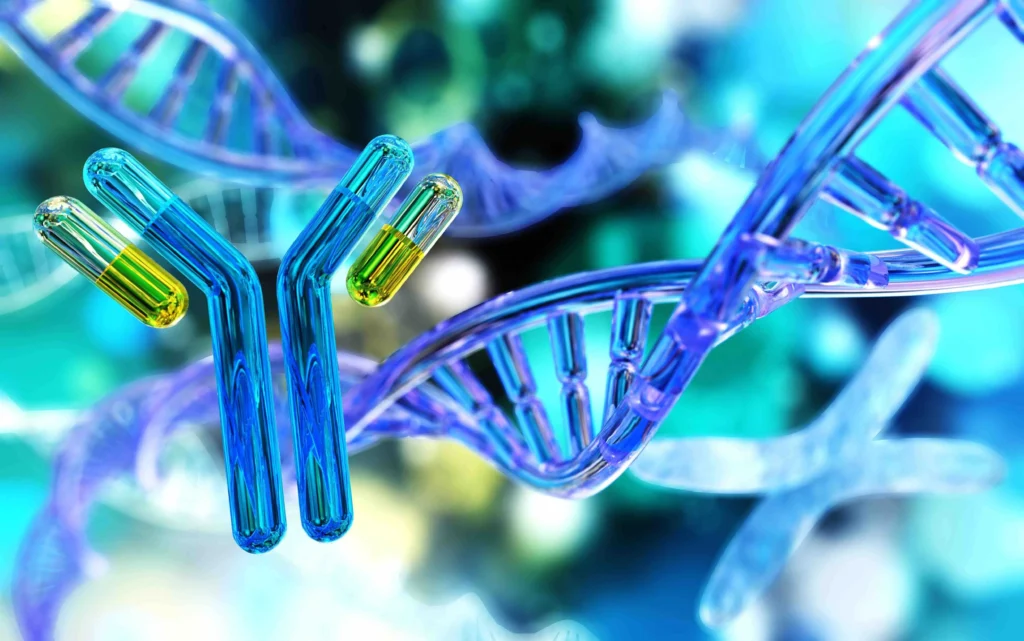Scientific advancements continuously bring new technologies, proteins, and enzymes that revolutionize multiple industries. One recent and intriguing innovation in the realm of biotechnology is “Proatese.” While the term might be unfamiliar to some, it represents a leap forward in how we approach enzyme-based applications. With potential uses across medicine, industrial biotechnology, and environmental management, it is rapidly gaining attention. In this article, we’ll explore it purpose, its scientific foundation, its applications, and its promising role in the future.
What is Proatese?
Proatese may be defined as a specialized enzyme or a synthetic protein designed to enhance or catalyze specific biochemical reactions. Its unique properties set it apart from traditional enzymes, allowing it to function with heightened precision and efficiency. While enzymes are natural catalysts that accelerate chemical reactions, it engineered properties enable it to offer tailored solutions for a variety of applications, from medical therapies to environmental cleanup.
The creation of it potentially represents a significant milestone in synthetic biology. Whether it’s used to address health conditions, support industrial processes, or even reduce environmental pollutants, Proatese demonstrates how modern science can create solutions that blend biological principles with technological innovation.
The Science of Proatese How It Works
To understand Proates importance, let’s take a closer look at the science behind it.
Molecular Structure and Function
Proatese molecular design allows it to function with a level of specificity that’s rare among natural enzymes. In the body or in industrial settings, Proates could engage with particular substrates, efficiently speeding up reactions while minimizing unwanted byproducts. For applications where precision is key—such as targeting cells in medical treatments or breaking down specific chemicals in environmental remediation—Proate could bring game-changing efficiency.
Engineering and Customization
Unlike naturally occurring enzymes, Proates may be synthesized or engineered in laboratories to meet exact requirements. This customization opens up many possibilities: Proates can be modified to remain stable under various temperatures, pH levels, and other conditions, ensuring it remains active and effective across a wide range of environments. By leveraging genetic engineering, researchers can create versions of Proates that are resilient and highly targeted, paving the way for applications across different fields.
Applications of Proatese
Proatese adaptability makes it suitable for a variety of fields. Here are some primary applications:
Medical and Therapeutic Applications
In the realm of health and medicine, Proates could be a valuable tool for treating enzyme deficiencies and supporting various therapeutic approaches. Potential uses include:
- Enzyme Replacement Therapy: For individuals with enzyme deficiencies, Proates could be administered as a replacement enzyme, assisting with metabolic functions and improving quality of life.
- Targeted Drug Delivery: Proates may serve as a carrier molecule, delivering drugs directly to targeted cells, minimizing side effects and enhancing treatment efficiency.
- Anti-Inflammatory Properties: If engineered for therapeutic use, Proatese might help manage chronic inflammation, offering relief for conditions like arthritis, inflammatory bowel disease, and other inflammatory disorders.
Industrial Biotechnology
Proatese robust and stable properties make it ideal for industrial applications, where efficiency and sustainability are essential.
- Biofuel Production: By accelerating the breakdown of plant matter, Proates could streamline biofuel production, making it a more cost-effective and environmentally friendly process.
- Textile Manufacturing: Enzymes play a crucial role in fabric production, assisting in softening, dyeing, and finishing processes. Proates durability could improve textile quality and reduce production times.
- Food and Beverage Processing: Enzymes like Proates are essential in industries such as brewing and cheese-making, where biochemical precision directly impacts product quality and consistency.
Environmental Applications
- Bioremediation: Proates might be engineered to break down environmental pollutants, including oil spills and plastic waste, assisting natural cleanup processes and reducing ecological harm.
- Water Purification: Water treatment facilities could employ Proates to target and eliminate specific contaminants, enhancing the purification process and making clean water more accessible.
Consumer and Household Products
Beyond industrial and environmental uses, Proatese could have practical applications for consumers:
- Cleaning Products: Proates could be included in detergents, enhancing their ability to break down tough stains and improve cleaning efficiency.
- Skincare and Cosmetics: If safe for topical use, Proates may become a staple in skincare products, helping exfoliate skin gently and promote overall skin health.
Advantages of Proatese

The wide range of applications demonstrates the flexibility of Proates. But beyond that, Proates offers unique advantages:
High Efficiency
Proates ability to catalyze reactions with precision makes it highly efficient. Whether used in a lab, factory, or medical setting, Proates could reduce production times, improve treatment outcomes, and minimize waste.
Sustainability and Eco-Friendliness
Proatese offers a sustainable alternative to chemical catalysts, which often have environmental drawbacks. Enzymes are biodegradable, reducing the need for harmful chemicals in industrial applications. Proates eco-friendly nature aligns with global efforts to adopt greener technologies.
Tailored Applications
The customizable nature of Proates allows it to be adapted for a variety of applications. This specificity is especially useful in healthcare and environmental sectors, where targeted treatments and interventions are often necessary.
Long-Term Cost Savings
While initial development costs might be high, Proates reusability and efficiency could lead to long-term savings. Its precision reduces waste, and in healthcare, Proates could offer affordable treatments for enzyme-related conditions.
Challenges and Potential Risks
Despite its advantages, there are challenges and risks associated with Proates.
Development and Production Costs
Developing Proatese involves high initial costs, particularly if it’s synthesized for specific purposes. Scaling up production may require significant investment, limiting access to industries or countries with substantial budgets.
Safety and Testing Concerns
Especially for medical and cosmetic uses, Proates must undergo rigorous testing to ensure it doesn’t provoke immune responses or cause side effects. Any compound introduced to the body, particularly enzymes, must meet stringent safety standards.
Environmental Considerations
Although Proates is an eco-friendly alternative, large-scale production can have environmental impacts. Proper management of raw materials, energy consumption, and waste will be essential in maintaining its sustainability.
Future Prospects What’s Next for Proatese?
Proates is still in its early stages, but it has the potential for even greater applications. Here’s what we might expect in the years to come:
Advancements in Genetic Engineering
With continued advancements in genetic modification, Proates could become even more precise. This could enable the creation of specific Proate variants tailored to address individual needs, opening new possibilities in gene therapy and personalized medicine.
Role in Personalized Medicine
As personalized medicine advances, Proatese could be customized to treat conditions based on a patient’s unique genetic makeup. For enzyme deficiency and metabolic disorders, tailored Proates treatments could provide effective, personalized solutions.
Green Manufacturing and Sustainable Practices
Industries are embracing green practices, and Proates role in sustainable manufacturing is likely to grow. By replacing conventional, pollutive catalysts with Proates industries can reduce their carbon footprint while enhancing efficiency.
Expansion into Agriculture
Beyond healthcare and industry, Proates could benefit agriculture by supporting plant health and protecting crops from disease naturally. As an enzyme, Proates could also assist in waste breakdown in agricultural settings, promoting eco-friendly practices.
Conclusion
Proatese represents a promising shift in the use of enzymes and proteins across multiple industries. With applications that range from health and medicine to industrial processing and environmental cleanup, Proates potential is vast. Its customizable, eco-friendly nature aligns well with modern technological and environmental demands. Although it faces challenges, particularly in cost and safety, the benefits of Proates far outweigh the potential drawbacks.
As research advances, we may see Proates integrated into everyday life, driving sustainable practices and offering innovative solutions to longstanding challenges. The future of Proatese is bright, and it could well become a staple in industries focused on efficiency, precision, and environmental responsibility.
Proates is an example of how technology and biology can work together to meet the demands of an increasingly complex world. As we move forward, Proates may help set new standards in health, sustainability, and technology.


